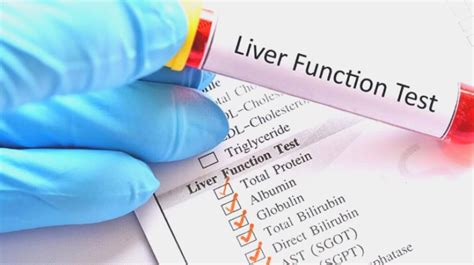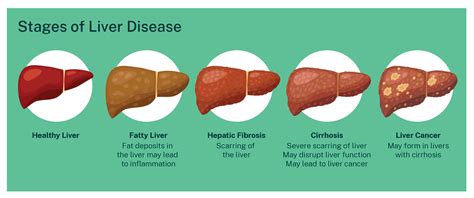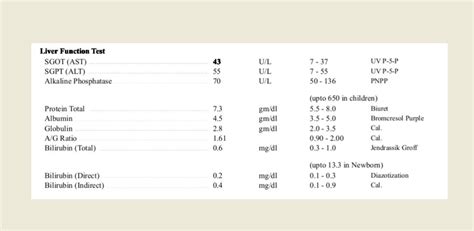Intro
Understand your liver health with our guide to Liver LFT test results, covering abnormal levels, ALT, AST, and GGT, to help diagnose liver disease and damage, and provide insight into your overall well-being.
The liver is a vital organ that plays a crucial role in maintaining our overall health. It performs a wide range of functions, including detoxification, protein synthesis, and the production of biochemicals necessary for digestion. One of the most common tests used to assess liver health is the liver function test (LFT). Understanding the results of this test can be a daunting task, but it's essential to grasp the basics to make informed decisions about your health. In this article, we'll delve into the world of liver LFT test results, exploring what they mean, how they're interpreted, and what steps you can take to maintain a healthy liver.
Liver function tests are a group of tests that measure various enzymes, proteins, and other substances in the blood to assess liver function. These tests can help diagnose liver diseases, such as hepatitis, cirrhosis, and liver cancer, as well as monitor the effectiveness of treatments. The most common liver LFT tests include alanine transaminase (ALT), aspartate transaminase (AST), alkaline phosphatase (ALP), gamma-glutamyl transferase (GGT), and bilirubin. Each of these tests provides valuable information about different aspects of liver function, and understanding their results is crucial for making informed decisions about your health.
The liver is a complex organ, and its function can be affected by a wide range of factors, including genetics, lifestyle, and environmental factors. Certain medications, such as statins and acetaminophen, can also impact liver function, and it's essential to be aware of these potential risks. By understanding the results of your liver LFT test, you can take proactive steps to maintain a healthy liver and reduce your risk of developing liver-related diseases. Whether you're looking to improve your overall health or manage a specific condition, understanding liver LFT test results is an essential step in taking control of your well-being.
Liver Function Tests: An Overview

Liver function tests are a crucial tool for assessing liver health. These tests measure various substances in the blood, including enzymes, proteins, and bilirubin, to evaluate liver function. The most common liver LFT tests include:
- Alanine transaminase (ALT): This test measures the level of ALT in the blood, which is an enzyme found primarily in the liver. Elevated ALT levels can indicate liver damage or disease.
- Aspartate transaminase (AST): This test measures the level of AST in the blood, which is an enzyme found in the liver and other tissues. Elevated AST levels can indicate liver damage or disease.
- Alkaline phosphatase (ALP): This test measures the level of ALP in the blood, which is an enzyme found in the liver and bones. Elevated ALP levels can indicate liver damage or disease, as well as bone disorders.
- Gamma-glutamyl transferase (GGT): This test measures the level of GGT in the blood, which is an enzyme found primarily in the liver. Elevated GGT levels can indicate liver damage or disease.
- Bilirubin: This test measures the level of bilirubin in the blood, which is a waste product produced during the breakdown of red blood cells. Elevated bilirubin levels can indicate liver damage or disease.
Interpreting Liver LFT Test Results
Interpreting liver LFT test results can be complex, and it's essential to consult with a healthcare professional to understand the results. The following are general guidelines for interpreting liver LFT test results: * Normal results: If the results of your liver LFT tests are within the normal range, it's likely that your liver is functioning properly. * Elevated results: If the results of your liver LFT tests are elevated, it may indicate liver damage or disease. The degree of elevation can provide valuable information about the severity of the condition. * Abnormal results: If the results of your liver LFT tests are abnormal, it may indicate a liver-related disorder, such as hepatitis, cirrhosis, or liver cancer.Common Liver Diseases and Conditions

The liver is susceptible to a wide range of diseases and conditions, including:
- Hepatitis: This is an inflammation of the liver, which can be caused by viruses, bacteria, or other factors.
- Cirrhosis: This is a condition characterized by scarring of the liver, which can lead to liver failure.
- Liver cancer: This is a type of cancer that affects the liver, which can be caused by a variety of factors, including genetics, lifestyle, and environmental factors.
- Fatty liver disease: This is a condition characterized by the accumulation of fat in the liver, which can lead to liver damage and disease.
- Liver failure: This is a condition characterized by the loss of liver function, which can be caused by a variety of factors, including liver disease, medication, and environmental factors.
Liver LFT Test Results and Disease Diagnosis
Liver LFT test results can provide valuable information for diagnosing liver-related diseases and conditions. The following are some examples of how liver LFT test results can be used to diagnose liver diseases: * Elevated ALT and AST levels can indicate hepatitis or liver damage. * Elevated ALP levels can indicate liver damage or disease, as well as bone disorders. * Elevated GGT levels can indicate liver damage or disease. * Elevated bilirubin levels can indicate liver damage or disease, as well as hemolytic anemia.Maintaining a Healthy Liver

Maintaining a healthy liver is essential for overall health and well-being. The following are some tips for maintaining a healthy liver:
- Eat a healthy diet: A diet rich in fruits, vegetables, and whole grains can help support liver health.
- Avoid excessive alcohol consumption: Excessive alcohol consumption can damage the liver and increase the risk of liver disease.
- Avoid medications that can harm the liver: Certain medications, such as acetaminophen, can harm the liver and increase the risk of liver disease.
- Get regular exercise: Regular exercise can help support liver health and reduce the risk of liver disease.
- Manage stress: Stress can have a negative impact on liver health, and managing stress through techniques such as meditation and yoga can help support liver health.
Liver LFT Test Results and Lifestyle Changes
Liver LFT test results can provide valuable information for making lifestyle changes to support liver health. The following are some examples of how liver LFT test results can be used to inform lifestyle changes: * Elevated liver LFT test results can indicate the need for lifestyle changes, such as reducing alcohol consumption or avoiding medications that can harm the liver. * Normal liver LFT test results can indicate that lifestyle changes, such as diet and exercise, are supporting liver health. * Abnormal liver LFT test results can indicate the need for medical attention and treatment to support liver health.Liver LFT Test Results and Medical Treatment

Liver LFT test results can provide valuable information for medical treatment and management of liver-related diseases and conditions. The following are some examples of how liver LFT test results can be used to inform medical treatment:
- Elevated liver LFT test results can indicate the need for medical treatment, such as medication or surgery, to support liver health.
- Normal liver LFT test results can indicate that medical treatment is effective in supporting liver health.
- Abnormal liver LFT test results can indicate the need for changes to medical treatment to support liver health.
Liver LFT Test Results and Monitoring
Liver LFT test results can provide valuable information for monitoring liver health and detecting potential problems early. The following are some examples of how liver LFT test results can be used to inform monitoring: * Regular liver LFT tests can help monitor liver health and detect potential problems early. * Elevated liver LFT test results can indicate the need for more frequent monitoring to support liver health. * Normal liver LFT test results can indicate that monitoring is effective in supporting liver health.Conclusion and Next Steps

In conclusion, understanding liver LFT test results is essential for maintaining a healthy liver and reducing the risk of liver-related diseases and conditions. By understanding the results of your liver LFT tests, you can take proactive steps to support liver health, including making lifestyle changes and seeking medical attention when necessary. If you have questions or concerns about your liver LFT test results, it's essential to consult with a healthcare professional to determine the best course of action.
What do liver LFT test results indicate?
+Liver LFT test results indicate the level of liver enzymes, proteins, and other substances in the blood, which can provide valuable information about liver function and health.
What are the most common liver diseases and conditions?
+The most common liver diseases and conditions include hepatitis, cirrhosis, liver cancer, fatty liver disease, and liver failure.
How can I maintain a healthy liver?
+To maintain a healthy liver, it's essential to eat a healthy diet, avoid excessive alcohol consumption, avoid medications that can harm the liver, get regular exercise, and manage stress.
What do elevated liver LFT test results indicate?
+Elevated liver LFT test results can indicate liver damage or disease, and may require medical attention and treatment to support liver health.
How often should I get liver LFT tests?
+The frequency of liver LFT tests depends on individual factors, such as age, medical history, and lifestyle, and should be determined by a healthcare professional.
We hope this article has provided you with a comprehensive understanding of liver LFT test results and their importance in maintaining a healthy liver. If you have any further questions or concerns, please don't hesitate to reach out to a healthcare professional. Remember, taking proactive steps to support liver health is essential for overall well-being, and understanding liver LFT test results is an important part of that process. Share this article with friends and family to help spread awareness about the importance of liver health, and take the first step towards a healthier, happier you!
